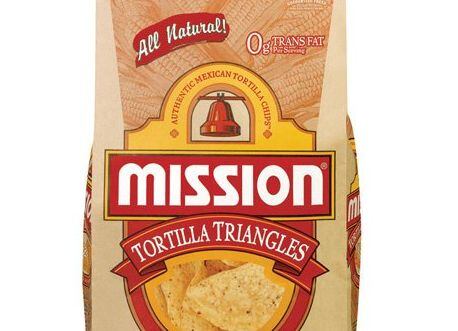The FDA says it is still “reviewing the order” from judge Yvonne Gonzalez Rogers in the Cox v Gruma Corp action over natural claims on Mission tortilla chips in which she put the case on hold for six months and referred the matter to the FDA to determine whether GMOs belong in ‘natural’ products.
However, the agency will not comment further at this stage, and its refusal to engage in this debate is beginning to dent its credibility, according to one attorney, who says the “FDA has avoided a number of key food labeling controversies” in recent years.
Bruce A Silverglade, a principal with the law firm Olsson Frank Weeda Terman Matz PC in Washington DC, told FoodNavigator-USA: “Given current fiscal constraints and FDA institutional priorities, there is little likelihood that FDA will find the resources to establish a level competitive playing field. Thus, the pandemic of class action cases involving food labeling is likely to continue.
“But I think the agency is losing credibility with the industry, with consumers and with the international community by ignoring key food labeling controversies. The industry expects the FDA to set a level competitive playing field and the GMO/natural issue is of intense interest.”
The pandemic of class action cases involving food labeling is likely to continue

He added: “It used to be the case that the courts were relied upon to make decisions over labeling disputes, but that was an inefficient system and regulatory agencies were formed in part to take care of these issues. But once regulators abdicate their responsibility, every court will decide what natural means.
“It also used to be the case that other countries would look to the FDA for leadership on these kinds of issues, but not anymore.”
There might be other less risky ways to reach out to your audience aside from using natural claims
So what’s the best line of defense in the meantime if you get sent a demand letter from an attorney threatening to sue over natural claims?
“The problem is that once these things go to court and become public knowledge, consumer protection groups and class action attorneys jump in and very quickly you might be looking at a dozen cases,” said Silverglade.
“You should also look very carefully at who you are being threatened by when you decide how to proceed. Is it a sole practitioner, or a huge firm that specializes in these cases?”
Food companies will all make different decisions on how to proceed, he said, with some agreeing to change labels before cases are filed, others settling, and others like POM fighting all the way to the top.
In some cases, he said, “there might be other less risky ways to reach out to your audience aside from using natural claims. There are other attributes to focus on.
“Take Ben & Jerry’s which [in 2010] agreed to phase out all natural claims on certain products [after being threatened with legal action by the Center for Science in the Public Interest].”
Defendants have met with some success gaining dismissal of cases by persuading courts to deny class certification

But what kinds of patterns are emerging in cases that are proceeding?
“Pre-emption and primary jurisdiction defenses have often been unsuccessful in these kinds of cases”, said Silverglade.
“However, counsel for defendants have met with some success gaining dismissal of cases by persuading courts to deny class certification. In some states, consumer protection statutes require a showing that each individual plaintiff relied on the food label statements alleged to be misleading in the complaint.
“Is there a really identifiable class here, is there commonality, do they have affidavits from representative consumers [swearing] that they wouldn’t have purchased this product [had they known certain facts about it] or that they brought this product and paid a premium because of the [allegedly deceptive] claims [on pack]?”
Does primary jurisdiction apply or not on all-natural/GMO cases?
The GMO/natural issue has been the subject of a growing number of class action lawsuits filed over the past 12-18 months over products from Nature Valley bars to Campbell’s Soup.
In recent weeks, some federal judges (Cox v Gruma Corp; Van Atta v Gen Mills; Barnes v Campbell Soup) handling such cases have argued that the doctrine of primary jurisdiction applies, and put legal proceedings on hold to give the FDA time to make a determination on this specific aspect of ‘all-natural’ claims.

However, other judges (Parker v JM Smucker; Gengo et al v. Frito Lay North America) have argued that the judicial system is more than capable of addressing whether these manufacturers have misled reasonable consumers by calling their wares ‘natural’.
FDA previously said it would take 2-3 years to decide if HFCS is ‘natural’ and declined to do so
They also point out that the FDA has not shown any enthusiasm for defining ‘natural’, and were it to do so, it would take a lot longer than six months.
Rejecting a recent request from ConAgra Foods to stay legal action over 'natural' claims on Wesson cooking oils on primary jurisdiction grounds in the wake of Judge Rogers' order in the Gruma Corp case, judge Margaret M. Morrow said: “First, the FDA would have to act, something it has declined to do in the past.”
She also noted that when the FDA was asked whether high fructose corn syrup was ‘natural’ in 2010, it said it had other priorities, and claimed such a determination would require “two to three years”.
Lawyer: This is certainly something that the FDA should look at
David Biderman, a partner in Perkins Coie’s Consumer Class Action Defense practice, told us that it was conceivable that the FDA would act on the GMO/natural issue, however: “This is certainly something that the FDA should look at. The FDA is in the business of food labeling and there is now a plethora of cases that if this is left to individual courts to decide, who knows what we'll end up with.
“But given that three courts have now referred this [issue to the FDA on primary jurisdiction grounds] I think there is a chance that the FDA will look at it.”
Click here to read more about this issue.
